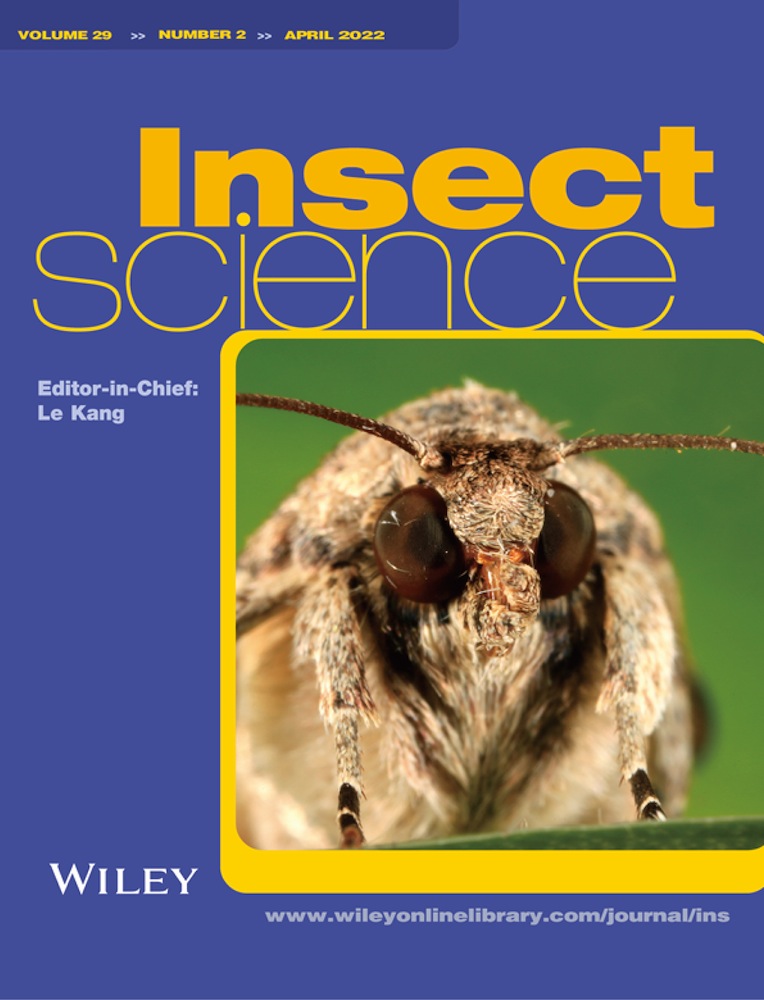Ver ítem
- xmlui.general.dspace_homeCentros Regionales y EEAsCentro Regional Patagonia NorteEEA BarilocheArtículos científicosxmlui.ArtifactBrowser.ItemViewer.trail
- Inicio
- Centros Regionales y EEAs
- Centro Regional Patagonia Norte
- EEA Bariloche
- Artículos científicos
- Ver ítem
Flexible foraging decisions made by workers of the social wasp Vespula germanica (Hymenoptera: Vespidae) in response to different resources: influence of ontogenetic shifts and colony feedback
Resumen
Decisions made by foraging animals conform a complex process based on the integration of information from multiple external environmental stimuli and internal physiological signals, which in turn are modulated by individual experience and a detection
threshold of each individual. For social insects in which foraging is limited to given age subcastes, individual foraging decisions may also be affected by ontogenetic shifts and colony requirements. We
[ver mas...]
Decisions made by foraging animals conform a complex process based on the integration of information from multiple external environmental stimuli and internal physiological signals, which in turn are modulated by individual experience and a detection
threshold of each individual. For social insects in which foraging is limited to given age subcastes, individual foraging decisions may also be affected by ontogenetic shifts and colony requirements. We studied the short-term changes in foraging preferences of
the generalist wasp Vespula germanica, focusing on whether the individual response to different resources could be influenced by the ontogenetic shifts and/or by social interaction with nestmates. We carried both laboratory and field experiments to confront worker
wasps to a short-term resource switch between either protein or carbohydrate-based foods.
We tested the response of (1) Preforager workers (no foraging experience nor interaction with other wasps), (2) Forager workers (experience in foraging and no colony feedback), and (3) Wild forager workers (foraging naturally and exposed to free interactions with
nestmates). We evaluated the maxilla-labium extension response (MaLER) for laboratory assays or the landing response for field assays. We observed that for wasps deprived of colony feedback (either preforagers or foragers), the protein-rich foods acceptance threshold increased (and thus a lower level of foraging on that item was observed) if they had foraged on carbohydrates previously, whereas carbohydrates were accepted in all assays. However, wasps immersed in a natural foraging context did accept protein foods regardless of their first foraging experience and reduced the carbohydrates collected when trained on protein foods. We provide evidence that short-term changes in foraging preferences depend on the type of resource foraged and on the social interactions, but not on ontogenetic shifts.
[Cerrar]

Fuente
Insect Science 29 (2) : 581-594 (2022)
Fecha
2022-04
Editorial
Wiley
ISSN
1744-7917
Formato
pdf
Tipo de documento
artículo
Palabras Claves
Derechos de acceso
Restringido
 Excepto donde se diga explicitamente, este item se publica bajo la siguiente descripción: Creative Commons Attribution-NonCommercial-ShareAlike 2.5 Unported (CC BY-NC-SA 2.5)
Excepto donde se diga explicitamente, este item se publica bajo la siguiente descripción: Creative Commons Attribution-NonCommercial-ShareAlike 2.5 Unported (CC BY-NC-SA 2.5)

